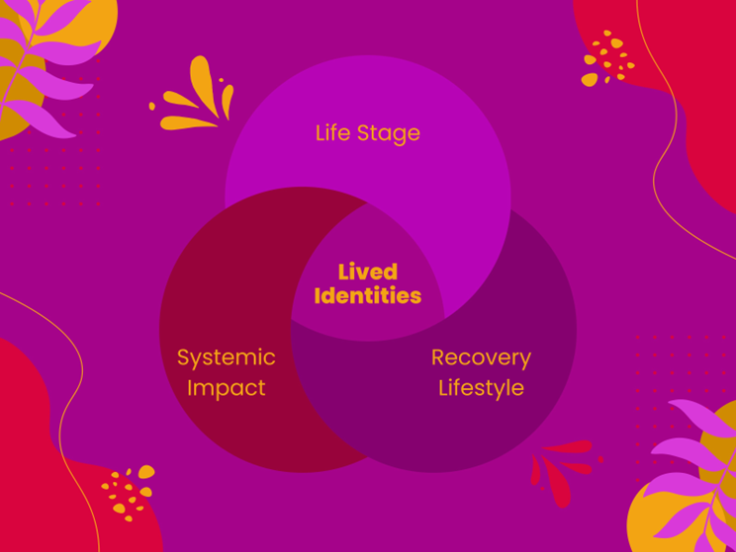Catalyzing Change: Dr. Gabrielle Jones Initiates A Paradigm Shift With 'Culturally Responsive Substance Use Treatment'

Every individual has a pivotal role to play in the pursuit of equity. Each contribution, whether it is advocating for marginalized communities, challenging systemic biases, or pioneering innovative solutions, is a step toward a more just and inclusive society. Dr. Gabrielle Jones, the CEO of Steady LLC and a substance use treatment expert, exemplifies this commitment through her upcoming book that addresses the gap in culturally responsive substance use treatment.
Her groundbreaking work Culturally Responsive Substance Use Treatment: A Guide for Practitioners, Students, and Organizations, set to launch on March 11, 2024, delves into the intersectionality of substance use and culture by examining historical contexts and contemporary challenges. The author not only highlights the existing discrepancies within substance use treatment but also offers tangible solutions to address them.
Dr. Jones employs a holistic approach, emphasizing the importance of considering both the individual and the larger systemic context in substance use treatment. With this, she paves the way for meaningful change, from addressing workplace cultures that perpetuate stigma to advocating for personalized treatment approaches.
The book employs the Culturally Responsive Substance Use Treatment (CRST) framework. It departs from traditional approaches by placing the individual at the center. Conventional methodologies often attempt to employ a one-size-fits-all approach to addressing the needs of populations. The CRST framework understands that each individual is unique and has complex lived experiences and social identities.
The concept of lived identities serves as the core of the CRST framework. This includes the external labels imposed by society and the internal narratives and personal histories that inform one's worldview. Building upon this, the framework unfolds into three prompts similar to the petals of a vibrant flower.
The life stage, the first petal, recognizes the significance of age and developmental phase in shaping an individual's relationship with substance use. Meanwhile, recovery lifestyle, the second petal, emphasizes the importance of exploring aspirations, dreams, and goals beyond sobriety. This empowers individuals to walk on a path toward a meaningful future.
The third and last petal revolves around systemic impact. Instead of viewing systems as obstacles to care, this aspect encourages practitioners and administrators to leverage existing structures as agents of cultural responsiveness. Each petal of the CRST framework showcases vibrant colors, symbolizing hope and resilience in the journey toward recovery.
When asked about the motivation behind penning this revolutionary book, the author answered, "There's already existing research about racial disparities and accessibility issues in substance use treatment. But they fall short of offering concrete solutions and addressing the root causes of systemic inequities. My goal is to provide practitioners, organizations, and communities with the resources and insights they need to initiate positive change in substance use treatment."
Although she finds challenging conventional norms daunting, Dr. Jones is driven by the impact her work has on those who are most vulnerable. She looks forward to a future where every individual, regardless of their background or circumstance, has equal access to the support and care they need to thrive.
Dr. Jones' hands-on experience in various mental health treatment settings for over a decade enabled her to have a profound understanding of the inequities in substance use treatment that negatively impact communities. She has witnessed firsthand the disparities among minoritized and marginalized communities, including the LGBTQIA+ community, BIPOC individuals, neurodiverse populations, and the veteran community.
The author combines the theoretical foundation she obtained from her master's degree in Educational Psychology and doctorate in Counseling Psychology with her extensive background in developing programs and co-writing manuals for culturally responsive substance use treatment to fill the gaps she recognized in the treatment landscape. She received recognition for her efforts from institutions such as the American Society of Addiction Medicine (ASAM). Oklahoma State University also honored her with the College of Education and Human Sciences Outstanding Alumni Award for her outstanding contributions to the field.
Ultimately, Dr. Gabrielle Jones' Culturally Responsive Substance Use Treatment: A Guide for Practitioners, Students, and Organizations lays the foundation for championing equity and inclusivity in substance use treatment. A licensed psychologist and addiction and adolescent expert shared her view about the book: "Dr. Gabrielle Jones is revolutionizing mental health and addiction services, shedding light on inequities in patient care and offering concrete solutions. Her book should be required reading for all graduate students, healthcare providers, and industry leaders." The author plans to release a client-facing workbook within the CRST framework in the future to empower individuals on their journey toward holistic healing and self-discovery.
© Copyright IBTimes 2025. All rights reserved.





















